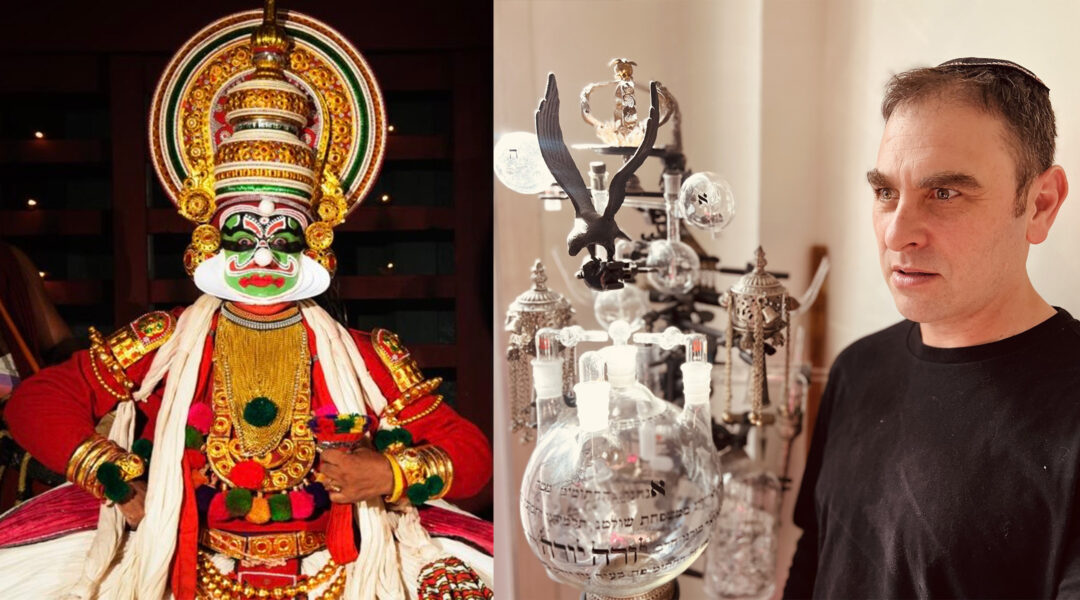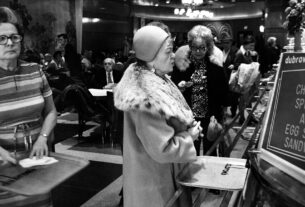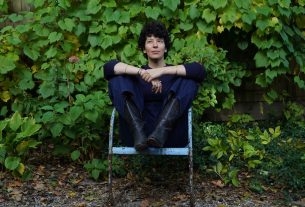(New York Jewish Week) — Walking tall across the black stage of the East Village’s Theater for the New City, Kalamandalam John makes a regal Pharaoh, with the bearing of a dancer.
That’s because John is a master of Kathakali, a traditional Indian dance form. He is in New York City to star in “Pharaoh,” a unique, Indian-influenced retelling of the biblical Exodus story through the perspective of Pharaoh, the Egyptian ruler who enslaved the Israelites.
Written by Rabbi Misha Shulman and directed by Michael Posnick, the play, which opens on Friday, employs this ancient Indian dance drama style to tell the Passover story from the bad guy’s point of view. Indian-inspired and Torah-influenced, the play explores Pharaoh’s inner life and struggles.
Kathakali means “story play.” In Kathakali theater, performers tell and honor stories through the medium of classical dance, with its own alphabet of 54 gestures — hand movements, facial expressions using every muscle, eye language — that convey emotion. It’s a kind of imaginative midrash, or biblical commentary, in motion.
Shulman, who leads The New Shul in Manhattan, has long been interested in traditional Indian performing arts. In 2008, he traveled to the small village of Muzhikulam in southern India to watch a 15-day play performed in the ancient theater form, Kudiyatam, which is closely related to Kathakali. Villagers and others would gather in the open-air theater to watch the performance for about five hours each evening beginning at dusk, sitting a few feet away from the one man on stage.
“It’s riveting, and the slowest thing you’ve ever witnessed,” Shulman told the New York Jewish Week. “It was the best thing I had seen in my life.”
He realized then that he wanted to approximate the Hindu theatrical tradition for a Western audience. “That play was about a 10-headed demon God. What was beautiful is that you get to be with this mythical bad guy for so long and fall in love,” Shulman said. “I needed a bad guy that everyone knew, and I landed on Pharaoh.”
Though Shulman does not have Indian heritage, he grew up surrounded by Indian culture: His father is a professor emeritus of Indian studies at Hebrew University. Their home in Israel was filled with Indian culture and Hindu stories, and Shulman said that two of the most important religious experiences of his life were in Hindu temples.
Shulman has spent 15 years working on “Pharaoh,” which was originally slated to premiere in March 2020, just before the COVID-19 pandemic shut theaters around the world. “I needed to get it right,” he said about the long birthing period.
In the 2020 version, Shulman played Pharaoh, with his own adaptation of Kathakali dance. But he has since taken on the full-time rabbinic role and realized that the stage role was “not the right thing at this time.” Through a series of connections, he met John’s daughter, who is also a dancer (and a dentist) and learned that John planned to be in New York this spring.
“When John showed up, watching him answered all my questions for the play to be what I thought it should be,” he said. “Before, it was New York experimental, multicultural, on the fly. Now it is something deeply respectful of the tradition that inspired the play.”
John is a master teacher of Kathakali and has been performing for more than 50 years. Hailing from Cheruthuruthy, a town in the south of India that’s known as a major center for traditional Indian performing arts, he’s the first Christian to become a Kathakali performer.
Support the New York Jewish Week
Our nonprofit newsroom depends on readers like you. Make a donation now to support independent Jewish journalism in New York.
In a conversation at the theater, John explained that this is the first time he is performing a story of Jewish relevance — although, as a Christian, he is familiar with the story of the Exodus.
To take on this role — or rather, roles, as he will play 54 different characters during the course of the performance, including Pharaoh, his wife and son, an Egyptian priest and a stammering Moses — he learned the words before adding the flow of gestures. “It takes time to go through the body,” he explained.
John rehearses in loose pants and a sweatshirt, his feet bare. In Kathakali tradition, the costume is worn only in performance. It takes three hours to apply the vibrantly colored make-up, dress in layers of skirt and decades-old adornments that weigh almost seven pounds and don the massive crown. All were brought from India, where they were made by specialized carpenters and artisans.
A 68-year-old man of agility, grace and strength, John demonstrates the stance of the Kathakali dancer, with his large toe folded over the other toes, which he will hold in the dance movements.
As is Kathakali tradition, when “Pharaoh” is performed, John is led onto the stage, hidden behind a cloth. He is accompanied onstage by two musicians, Galen Passen on the sitar and Tripp Dudley on tabla and percussion. John offers them a blessing as the show begins. Shulman narrates the story and occasionally sings as John performs.
The play opens with a broken Pharaoh grieving at the fresh grave of his son. Having lost everything, he then offers his account of events leading up to the final plague set upon the Egyptians, the death of the first-born.
“If you take Pharaoh and the entire civilization of Egypt and turn it into what we all have so much fun doing at our seders — flattening it out to a caricature of evil and stubbornness — if we can do that to Pharaoh, we can do that to anyone,” Shulman said.
According to the rabbi, “Pharaoh” is about “dimensionalizing” the Passover story — letting go of a singular perspective. Ultimately, he said, it’s a play about empathy and imagination.
“The play has felt extremely relevant since I started working on it,” Shulman said. “Now, my understanding of the play and its importance has a lot to do with the conversation around Oct. 7 and people’s inabilities to take on another person’s perspective and the instinct to vilify anyone who disagrees and sees things differently. We are all caught up in seeing our political opponents as enemies. The play offers some softening of that painful piece of society right now.”
As an actor, Shulman — who moved from Israel to New York in 1999 to study acting at Hunter College — has performed around the world. His own plays have often focused on Israeli-Palestinian affairs, including “Desert Sunrise” and “Martyrs Street.” This is his sixth play produced at Theater for the New City, a 50-year-old venue for innovative theater.
Shulman is also the director of the School of Creative Judaism, which he founded in 2009; the alternative Hebrew school brings together religion, art and activism under the framework of Jewish tradition.
Asked about what he’d like audience members to take away from “Pharaoh,” the rabbi said, “I’d like them to try and take these archetypes as something that happens within each one of us, rather than something that’s just out there — to embody something about the story.”
Support the New York Jewish Week
Our nonprofit newsroom depends on readers like you. Make a donation now to support independent Jewish journalism in New York.
“At its core, ‘Pharaoh’ answers the call at the heart of our tradition and at the heart of Passover: to ask questions, to seek truth, to continuously work for our own and others’ liberation,” he said.
“Pharaoh” plays at Theater for the New City, 155 First Ave., from March 15-31, Performances are scheduled for Thursdays, Fridays and Saturdays at 8 p.m., Sundays at 3 p.m., with no performance on Friday, March 22. Running time is 75 minutes (no intermission). Get tickets here.




